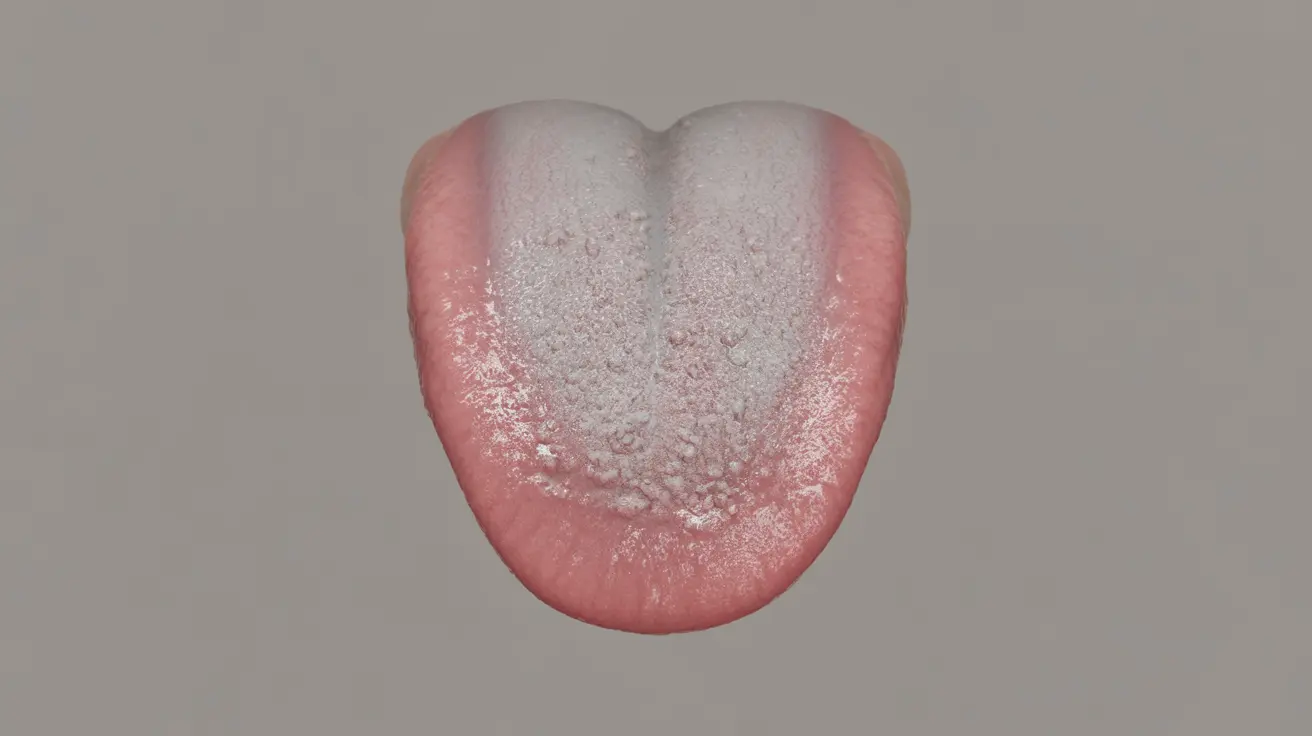A white coating on your tongue can be an important indicator of dehydration and overall oral health. Understanding the connection between dehydration and white tongue appearance can help you recognize when your body needs attention and proper hydration. This comprehensive guide explores the causes, treatments, and prevention strategies for dehydration-related white tongue.
Understanding White Tongue During Dehydration
When you become dehydrated, your body's natural moisture levels decrease, affecting various areas including your mouth and tongue. The tongue's surface can develop a white coating due to reduced saliva production and an accumulation of debris, dead cells, and bacteria that would normally be washed away through proper hydration.
Common Causes of White Tongue
Dehydration-Related Causes
Several factors can lead to dehydration and subsequent white tongue:
- Insufficient water intake
- Excessive sweating during exercise
- Hot weather conditions
- Illness with fever
- Excessive alcohol consumption
- Certain medications that cause dry mouth
Other Contributing Factors
While dehydration is a significant cause, other conditions can also result in white tongue:
- Poor oral hygiene
- Bacterial or fungal infections
- Smoking or tobacco use
- Certain medications
- Immune system disorders
Signs and Symptoms Associated with Dehydration
A white tongue rarely occurs in isolation during dehydration. Watch for these accompanying symptoms:
- Dark yellow urine
- Dry, sticky mouth
- Decreased urination
- Headache
- Fatigue
- Dizziness
- Reduced skin elasticity
Treatment Options for White Tongue
Immediate Solutions
To address a white tongue caused by dehydration, consider these immediate actions:
- Increase water intake gradually
- Use a tongue scraper or soft toothbrush
- Rinse with salt water
- Maintain proper oral hygiene
- Avoid alcohol and caffeine temporarily
Long-term Prevention
Implement these strategies to prevent future occurrences:
- Maintain consistent daily water intake
- Practice regular oral hygiene
- Use alcohol-free mouthwash
- Schedule regular dental check-ups
- Monitor medication side effects
Maintaining Oral Health During Dehydration
Good oral hygiene becomes even more crucial when dealing with dehydration. Focus on:
- Brushing teeth twice daily
- Regular tongue cleaning
- Using sugar-free gum to stimulate saliva production
- Avoiding tobacco products
- Limiting acidic and sugary foods
Frequently Asked Questions
What causes a white coating on the tongue when I am dehydrated? When you're dehydrated, reduced saliva production allows bacteria, dead cells, and debris to accumulate on your tongue's surface, creating a white coating. This buildup occurs because there isn't enough moisture to naturally cleanse the tongue.
How can I treat or reverse a white tongue caused by dehydration? To treat a dehydration-related white tongue, gradually increase your water intake, use a tongue scraper or soft toothbrush to clean your tongue, maintain good oral hygiene, and consider using a salt water rinse. If symptoms persist, consult a healthcare provider.
What are the other signs and symptoms that accompany dehydration-related white tongue? Common accompanying symptoms include dark yellow urine, dry mouth, reduced urination frequency, headache, fatigue, dizziness, and decreased skin elasticity. These symptoms often appear alongside a white tongue during dehydration.
Can poor oral hygiene or infections also cause a white tongue similar to dehydration? Yes, poor oral hygiene, bacterial or fungal infections, smoking, and certain medical conditions can cause a white tongue that looks similar to dehydration-related cases. It's important to maintain good oral hygiene and seek medical advice if the condition persists.
How can I prevent a white tongue and maintain good oral health when dehydrated? Prevent white tongue by staying well-hydrated, practicing regular oral hygiene, using a tongue scraper daily, avoiding tobacco and excessive alcohol, and maintaining regular dental check-ups. If you're prone to dehydration, carry water with you and set reminders to drink throughout the day.




